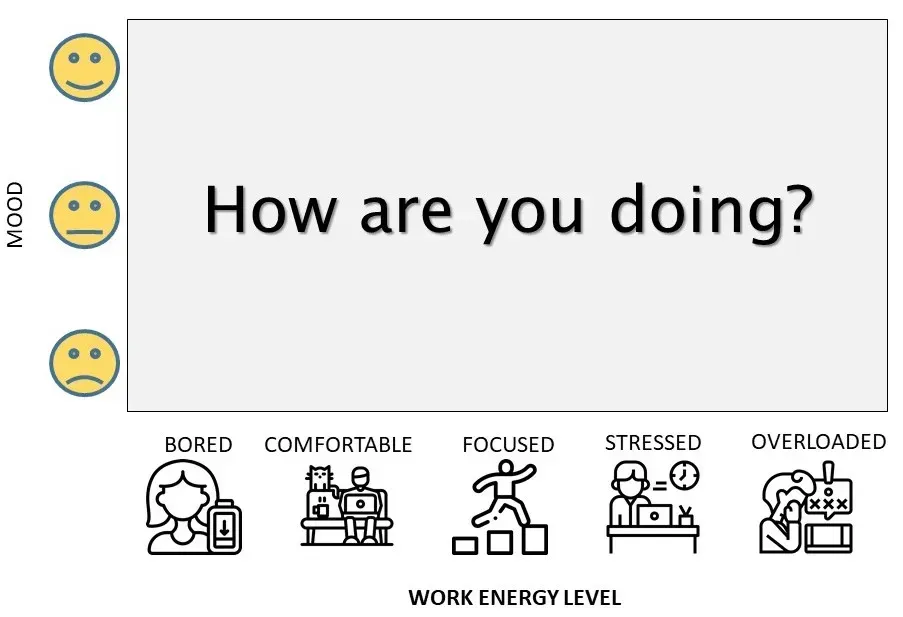Emotional Insights: Nurturing Retention in a Competitive Job Market
In today's global job market, where record-low unemployment rates reign, retaining top talent has become increasingly challenging for employers. A recent Boston Consulting Group (BCG) survey involving 11,000 employees from eight countries sheds light on the factors that matter most to workers and how their employers can better cater to their needs. Here, we explore the critical findings of this survey and the significance of addressing employees' emotional needs to enhance retention rates.

The Global Talent Landscape
As the job market continues to tighten, a staggering 28% of employees worldwide, whether actively seeking new opportunities or considering a switch, do not envision themselves staying with their current employers beyond a year. This statistic underlines the urgent need for organisations to prioritise and invest in understanding what truly matters to their workforce. The BCG survey, conducted in October 2023, provides valuable insights into this matter.
Functional vs. Emotional Needs
The survey examined more than 20 employee needs, categorising them into functional needs (such as pay, working hours, and benefits) and emotional needs (such as feeling valued, supported, and enjoying their work). Unsurprisingly, employees predominantly cited functional factors when asked what would prompt them to change jobs. The top considerations were pay, benefits, work/life balance, job enjoyment, and career growth opportunities.
However, when employees were presented with choices simulating a decision-making scenario, emotional needs emerged within the top five factors. While pay and hours remained at the forefront, the importance of feeling fairly treated and respected, having job security, and enjoying their work (all emotional needs) became evident.
Crucially, when the survey data correlated with employees' intentions to stay with or leave their jobs, functional benefits like pay dropped lower. Emotional factors took precedence, with job security, fair treatment, enjoyable work, feeling valued, and being supported topping the list. Organisations seeking to retain their workforce must prioritise meeting these emotional needs.
The Power of Great Managers
BCG's analysis of the survey data revealed that the most influential factor in fulfilling employees' emotional needs is their managers. Managers play a pivotal role in shaping their employees' day-to-day experiences, whether positive or negative. Notably, having great managers was associated with a 72% reduction in attrition risk among employees who expressed high satisfaction with their managers compared to those who were highly dissatisfied. This impact held true across all surveyed countries except India, where it was the second most influential factor.
Beyond retention, great managers were correlated with a 3.2x increase in employee motivation, a 13.9x increase in job satisfaction, and a significant boost in feelings of inclusion. Inclusion is significant for attracting and retaining a diverse workforce. Employees reporting satisfaction with their managers saw their inclusion ratings rise by 36 points on BCG's BLISS index, which measures inclusion drivers and their value.
Conversely, strong dissatisfaction with managers doubled the attrition risk, with 56% of employees harbouring such sentiments at risk, compared to the global average of 28%. Therefore, investing in upskilling and incentivising managers to excel in their roles is the most impactful step companies can take to retain their top talent. This investment goes beyond mere training; it necessitates substantial improvements in managers' capabilities.
Additional Levers for Employee Satisfaction
While great managers are the most influential lever for satisfying employees' emotional needs, other factors also play a crucial role. The three levers most correlated with meeting these needs were supportive leaders, access to resources necessary for work, and equal access to opportunities, irrespective of background. These levers had a similar impact on employee satisfaction when examined in isolation. Combined with great managers, they reduced attrition risk from the global average of 28% to a mere 9%.
A Shift in the Employer-Employee Dynamic
The BCG survey underscores a significant shift in the dynamics between employers and employees. In today's job market, employees actively seek better opportunities, and it is incumbent upon leaders to treat their workforce as they would their customers. This means adopting customer-focused practices like deep discovery, sophisticated needs assessment, segmentation, personalisation, design thinking, and creating genuine employee journeys.
It is now evident that factors beyond pay and benefits substantially influence employees' decisions to stay or leave their jobs. Emotional needs play a pivotal role, and leaders who disregard this fact do so at their peril.
The Role of Continuous Improvement
Many organisations believe they are already investing in developing their frontline managers' capabilities. However, BCG emphasises the need for a fundamental shift in thinking. True enablement is required to build manager skills sustainably, moving beyond token, ad hoc training modules. Creating meaningful changes in managers' capabilities will result in lasting value for employees and the organisation.
Retaining top talent in a highly competitive job market requires organisations to understand and cater to their employees' emotional needs. The BCG survey reinforces the pivotal role of great managers in achieving this goal, along with other levers such as supportive leaders, resource accessibility, and equal opportunity.
In this evolving employer-employee relationship, organisations must prioritise meeting emotional needs and consider employees as valuable customers. It is a call to action for leaders to invest in developing better managers who can provide the connection, support, appreciation, and motivation that all employees crave. In doing so, companies can secure top talent and thrive in an increasingly competitive landscape.



